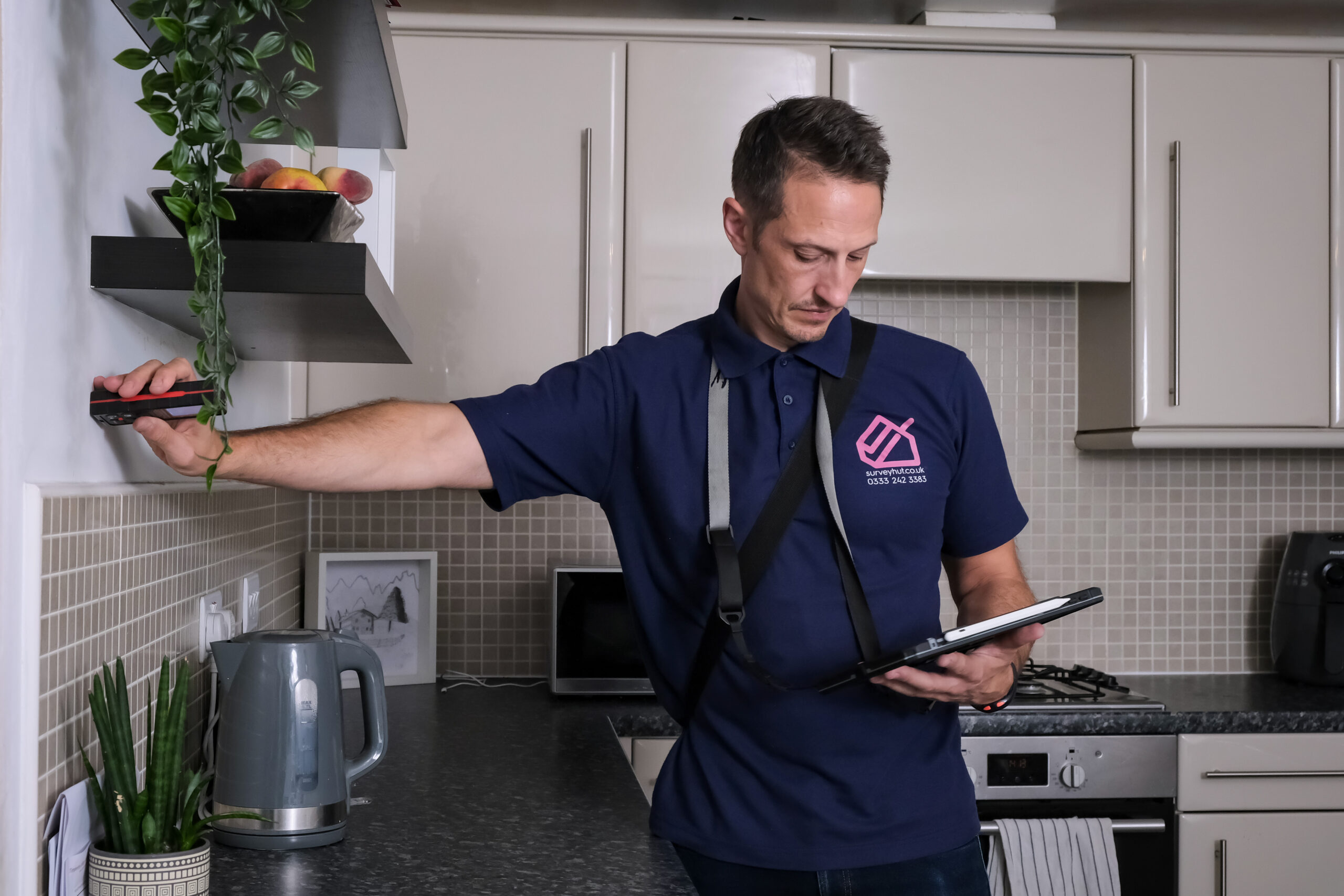When buying a home in the UK, it’s essential to understand the condition of the property before finalising the purchase. A house survey can provide a detailed report on the state of the building and highlight any potential issues. We typically have various types of house surveys to choose from, each catering to different needs and depths of inspection. The choice of survey highly depends on factors such as the property’s age, style, and construction.
Various professional bodies, such as the Royal Institution of Chartered Surveyors (RICS), offer a range of surveys including a Condition Report (Level 1 Home Survey), HomeBuyer Report (Level 2 Home Survey), Building Survey (Level 3 Home Survey) and more specialised surveys like Snagging Lists for new builds. The Condition Report is a basic ‘traffic light’ survey that offers a clear and concise overview of the property, whereas the Building Survey is far more comprehensive and suitable for older, larger, or non-traditional homes.
Selecting the right type of house survey can save us significant time and money in the long run, and it’s important for us to consider the level of detail we require before making a decision. Each survey type provides a different level of scrutiny and insight, allowing us to proceed with our purchase with confidence and transparency.
Types of House Surveys
When choosing the right type of house survey, we need to consider our specific needs and the type of property we’re looking at. The three main types of property surveys offered by the Royal Institution of Chartered Surveyors (RICS) in the UK provide varying levels of detail and are suitable for different purposes.
RICS Condition Report
The RICS Condition Report is the most basic type of house survey we can choose, and it uses a traffic light system to rate the condition of different parts of the property. It’s best suited for new-builds and conventional homes in good condition. This report provides a clear overview of the property’s condition, including any risks and legal considerations, without going into detail about repairs.
RICS HomeBuyer Report
In the case of the RICS HomeBuyer Report, we get more detailed information. It includes all the features of the Condition Report, plus a more thorough inspection. The report will highlight any problems, such as damp or basic structural issues, and can include advice on repairs and maintenance. It’s a good choice for properties that appear in reasonable condition, but where we might need additional information before making a purchase.
Building Survey
For older or non-standard properties, or those we plan to significantly change, a Building Survey is the most comprehensive type of house survey. This survey provides an in-depth analysis of the property’s condition and includes advice on defects, repairs, and maintenance options. It is much more detailed and provides us with extensive information about the structure and fabric of the building.
Why Do I Need a House Survey?
Before proceeding with a property purchase, we need to understand its condition thoroughly. There are also several further advantages to commissioning a house survey:
Acquiring a house survey assures us of the property’s structural health. It evaluates essential aspects like the roof, structure, and dampness issues. If problems are found, we can then decide if we’re prepared to handle them post-purchase.
Should the survey uncover any problems, this becomes a powerful tool for us in negotiations. We can leverage the need for repairs to negotiate a lower purchase price, aligning it more closely with the property’s condition.
Choosing the Right House Survey
When we look to purchase a property, selecting an appropriate choice from the different types of home surveys is crucial to understanding the condition of the home and helps us make an informed decision.
Understanding Property Age and Type
The age and type of property we’re considering will significantly influence the type of house survey that’s most appropriate.
- Older homes that have been around for a century or more often require a full Building Survey – the most comprehensive of property survey types. This survey is thorough and provides detailed insights into the property’s condition, including any structural concerns.
- For newer builds, a less extensive survey like the HomeBuyer Report is generally sufficient. This type assesses the property’s general condition and highlights any urgent defects without an in-depth analysis.
- If we’re looking at a listed building or a property constructed with unconventional materials, a specific survey dedicated to conservation or specialist properties may be warranted to address unique considerations.
Assessing the Level of Detail Required
Choosing the right level of survey detail depends on our comfort with potential risks and the extent of information we need.
- A Condition Report is a basic ‘traffic light’ type of house survey that offers a rudimentary overview, suitable for new properties or those in very good condition.
- The HomeBuyer Report, a further step up, provides a clear summary of problems and potential issues, but doesn’t delve beneath floors or behind walls.
- For the deepest insight, especially if we plan to conduct significant work, the full-scale Building Survey offers an in-depth analysis that can guide our renovation plans with its detailed examination.
The Survey Process and Choosing a Surveyor
In our journey to ensure a property is in good condition, we should engage with professionals and follow a structured process.
Selecting a Chartered Surveyor
Choose a Chartered Surveyor who is a member of the Royal Institution of Chartered Surveyors (RICS). This ensures they adhere to strict professional standards and are competent in delivering various types of property surveys. Make sure to consider factors like reputation, experience, and cost.
Survey Execution and Timing
The execution of a survey depends on the property’s size and the different types of home surveys you’ve chosen. Timing is crucial; once you have a mortgage offer and an offer accepted for a property, you ought to book a survey promptly. It may take a week or so before the survey can be conducted, so you must factor this into your buying timeline.
Get in touch with Survey Hut today for a comprehensive Level 2 or Level 3 Home Survey. We are held to the highest professional standards by the RICS, so you know that you’ll get a high-quality report. Make sure your perfect home, is perfect.
Sharing is caring!
Sharing is caring!




